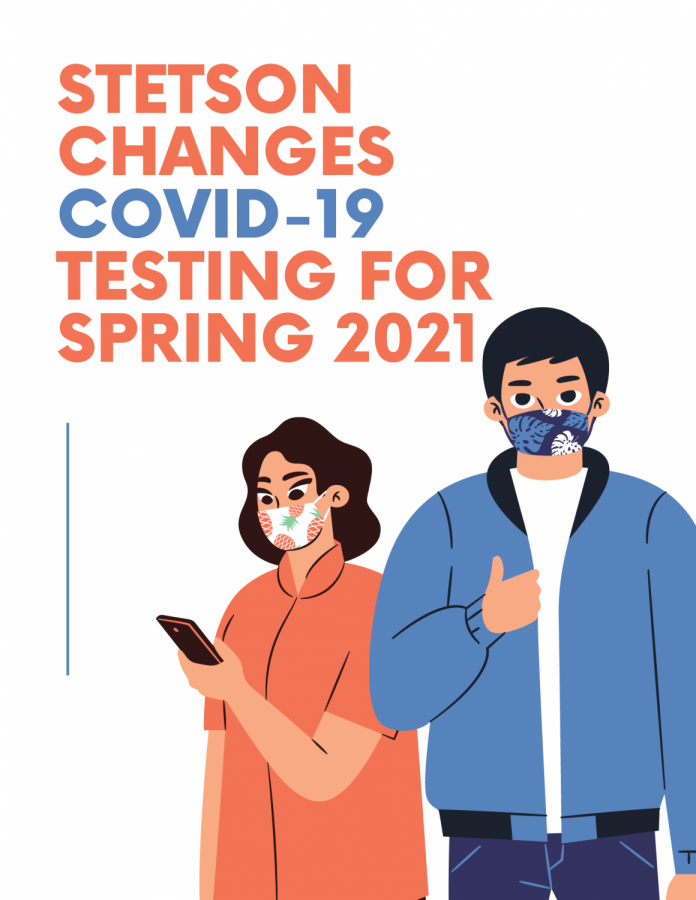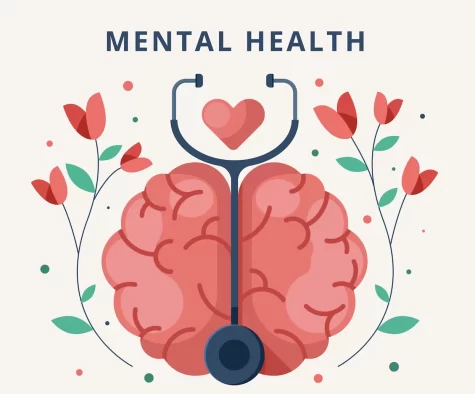Stetson Changes COVID-19 Testing for Spring 2021
Stetson Health Services has switched their COVID-19 testing method from a nasal swab to SalivaDirect PCR-based COVID-19 testing for on-campus, asymptomatic testing.
“RT-PCR tests detect the presence of SARS-CoV-2 based on its genetic makeup (RNA). This test is highly sensitive and accurate but results typically take 24 to 48 hours,” said Colleen Vanderlip, chair of the Safer Stetson Screening and Testing Subgroup.
Stetson Health Services has collaborated with a vendor to provide this on-campus testing opportunity all year but recently decided to switch testing methods after consistent re-evaluation of the effectiveness of their process.
As to what influenced this change, “We are constantly evaluating different testing options and vendors to determine whether something new may be in the best interest of the community,” Vanderlip said.
According to Harvard Health Publishing at Harvard Medical School, a saliva-based test is not only more comfortable for the patient but also easier to perform as it requires less interaction between the healthcare worker and the individual being tested.
However, Senior Faculty Editor for Harvard Health Publishing Robert H. Shmerling, M.D., noted that the nasal swab has distinct advantages as well.
According to Schmerling, “A molecular test using a nasal swab is usually the best option, because it will have fewer false negative results than other diagnostic tests or samples from throat swabs or saliva.”
Vanderlip noted that a litany of factors were contemplated when Stetson Health Services was considering making this change.
“Some of the deciding factors in our most recent switch to SalivaDirect PCR-based testing included a recommendation from the Volusia County Department of Health, the increased accuracy and sensitivity of the test, the non-invasive nature of collecting the sample, resources needed, and the reduced Center for Disease Control quarantine time for exposed individuals,” Vanderlip said.
Jamison Brundidge (‘24), a student-athlete at Stetson, is tested once a week and said that he prefers the saliva-based test over the nasal swab. “The nasal test is super uncomfortable and usually leaves that weird feeling that lasts all day,” said Brundidge.
Though Brundidge also noted that there are some quality-of-life pitfalls of the SalivaDirect PCR-based testing. As Brundidge pointed out, “The only downfall of the saliva test is that you can’t brush your teeth first.” Additionally, eating or drinking anything but water is restricted 30 minutes before taking the test.
“The decision to make any changes to Stetson’s testing plan is always multifaceted. Choosing the appropriate testing method relies on the constant evaluation of a variety of factors including disease stage, testing location/resources, testing purpose, etcetera,” said Vanderlip. “We are constantly evaluating different testing options and vendors to determine whether something new may be in the best interest of the community.”







